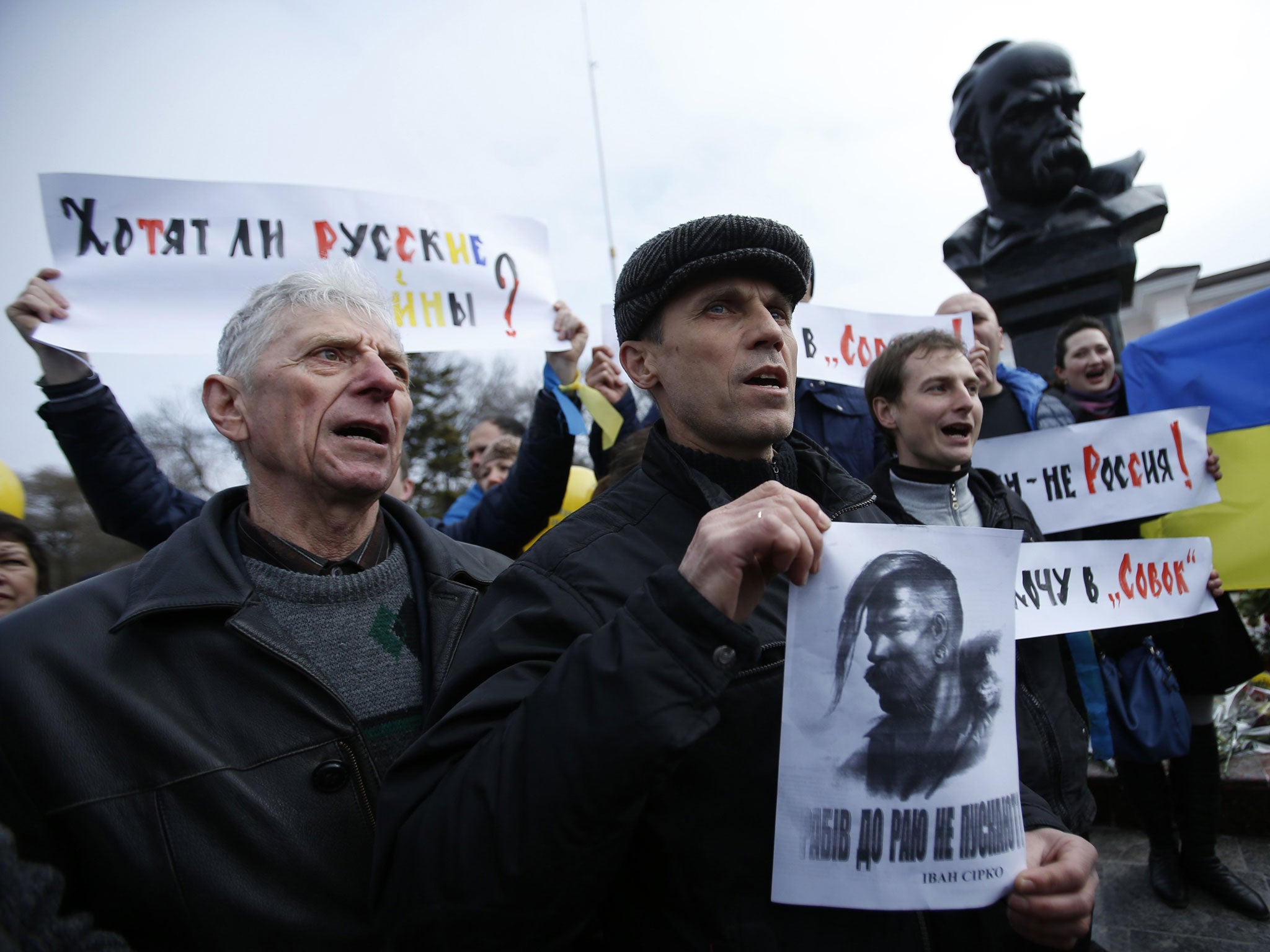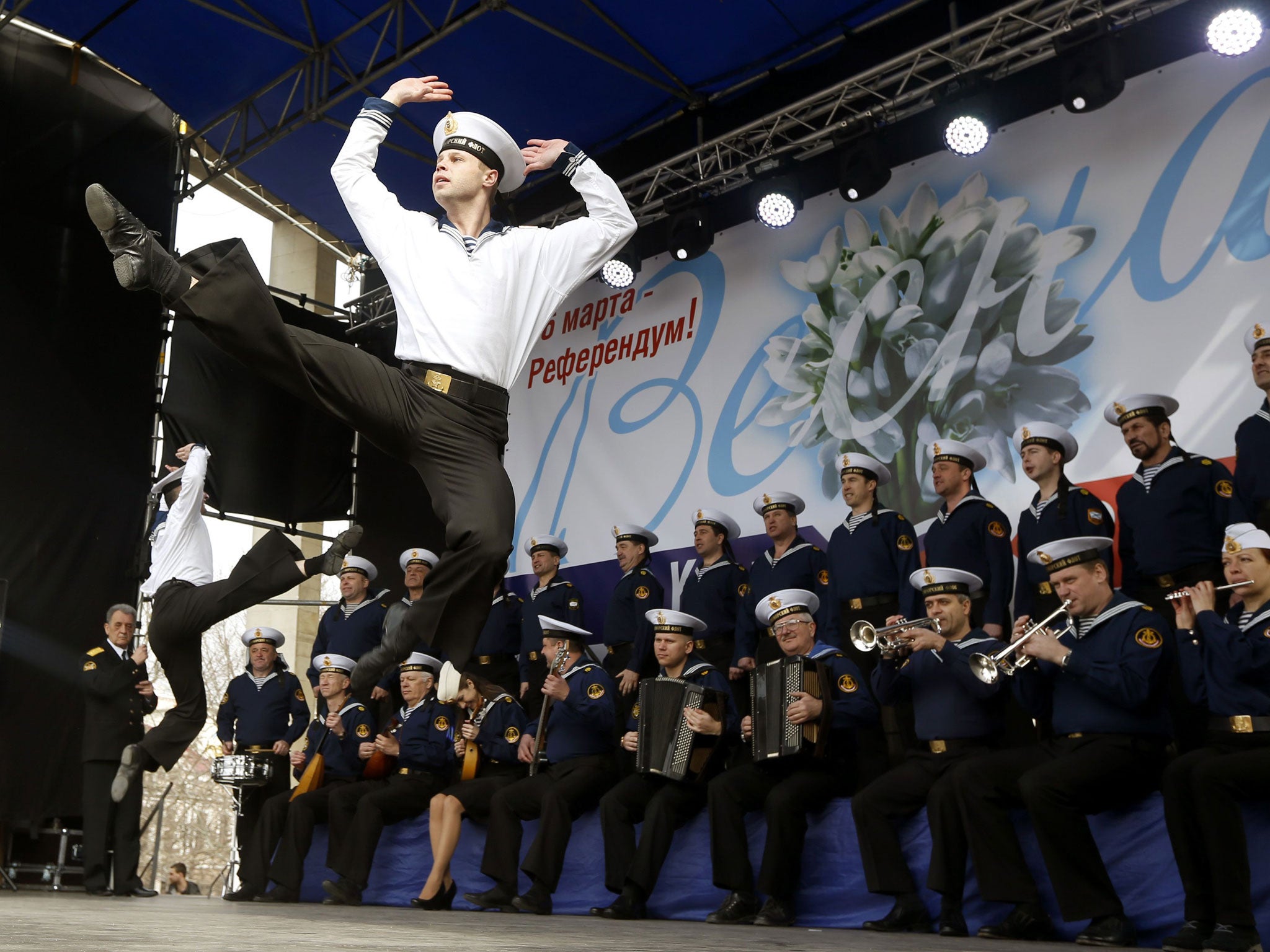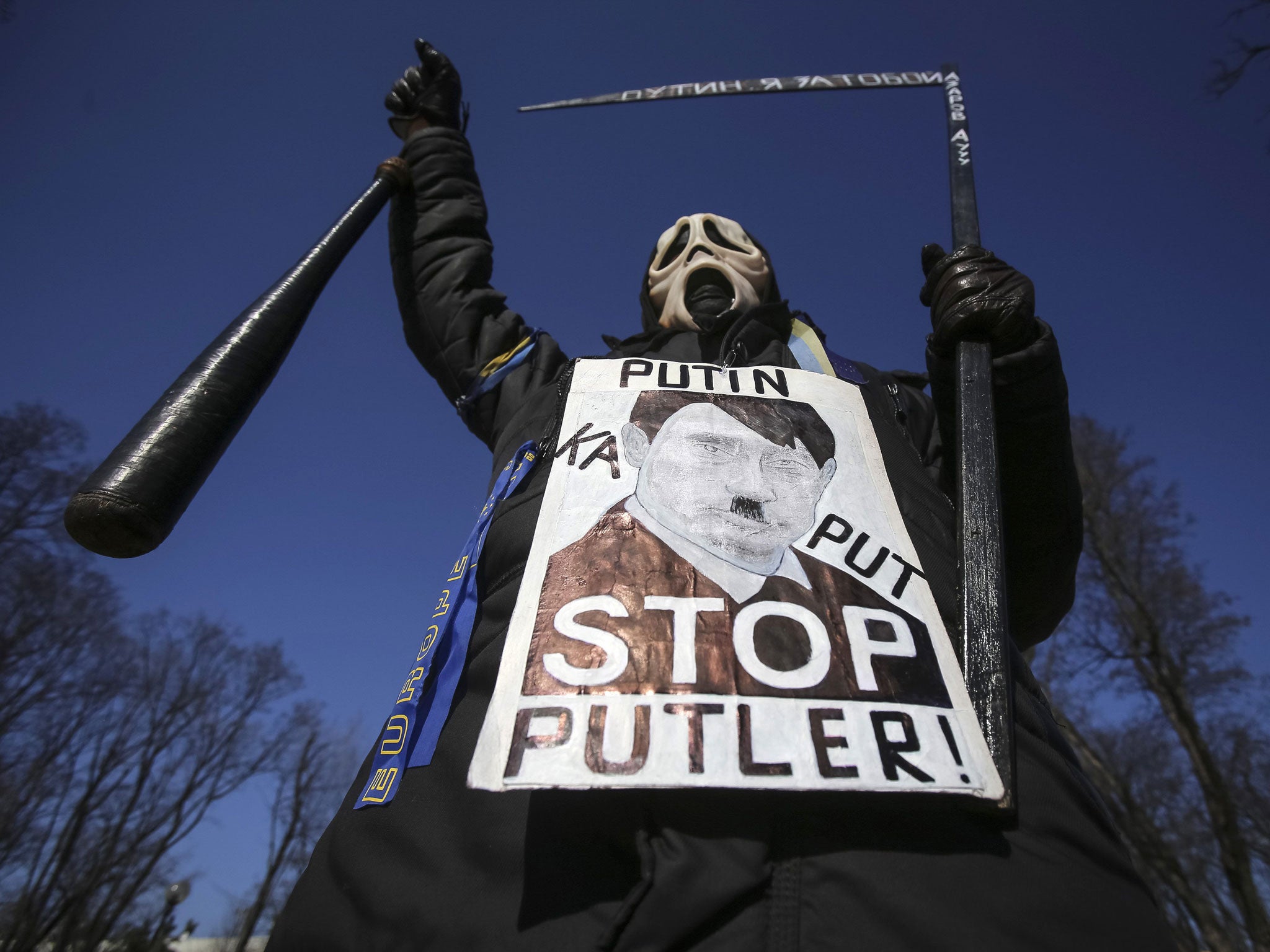Ukraine crisis: Western governments pile the pressure on Vladimir Putin to find peaceful solution
Western leaders redouble diplomatic efforts with Moscow to find a peaceful solution to the escalating crisis in Crimea

Your support helps us to tell the story
From reproductive rights to climate change to Big Tech, The Independent is on the ground when the story is developing. Whether it's investigating the financials of Elon Musk's pro-Trump PAC or producing our latest documentary, 'The A Word', which shines a light on the American women fighting for reproductive rights, we know how important it is to parse out the facts from the messaging.
At such a critical moment in US history, we need reporters on the ground. Your donation allows us to keep sending journalists to speak to both sides of the story.
The Independent is trusted by Americans across the entire political spectrum. And unlike many other quality news outlets, we choose not to lock Americans out of our reporting and analysis with paywalls. We believe quality journalism should be available to everyone, paid for by those who can afford it.
Your support makes all the difference.Britain, Germany and other Western governments put fresh pressure on Russian President Vladimir Putin on Sunday night to take steps towards a peaceful solution to the crisis over Crimea by engaging in talks with the government of Ukraine and acquiescing to the creation of a high level “contact group” of diplomats to seek a way out for all sides.
Efforts to corral Moscow onto some sort of diplomatic path intensified amidst warnings that a failure to get all sides to the table soon could lead to a rapid deterioration of the worst East-West confrontation since the Cold War particularly if Moscow were to expand its incursion into parts of eastern Ukraine beyond the Crimean peninsula.
The White House said that Ukraine's Prime Minster Arseniy Yatsenyuk would be traveling to Washington on Wednesday for talks with President Barack Obama to seek ways to end the crisis which has seen soldiers apparently under Moscow's command seizing control of the Crimean peninsula and a decision by its parliament last week to seek unification with Russia and to hold a referendum potentially to endorse it next Sunday.
In telephone talks on Sunday with Mr Putin, the British and German leaders, David Cameron and Angela Merkel, jointly insisted that the proposed referendum would be a violation of international law and the Ukrainian constitution. A top US National Security official, Tony Blinken, said "if there is an annexation of Crimea, a referendum that moves Crimea from Ukraine to Russia, we won't recognize it, nor will most of the world."
However, there was scant sign of concession from Moscow. In a statement, the Kremlin said Mr Putin had underlined to Ms Merkel and Mr Cameron "that the steps taken by Crimea's legitimate authorities are based on international law and aimed at guaranteeing the legitimate interests of the peninsula's population" and he was responding to "the rampant behaviour of ultra-nationalists and radical forces in the capital and in many regions".

There was also defiance from Kiev where Mr Yatsenuk told a rally called to celebrate the 200th anniversary of the birth of a revered Ukrainian poet that the country wouldn't surrender a "single centimeter" of territory. "This is our land," he said. "Our fathers and grandfathers have spilled their blood for this land." However, Ukraine's acting Defence Minister, Ihor Tenyukh, said there were no plans to send the country's armed forces to Crimea.
Among those warning of the risk of a worsening of the crisis was former James Baker, the last US Secretary of State who served during the Cold War. "I would say we are in a Cold War light already and we don't need to move further down that road because it could lead to some serious problems in the heart of Europe," he said.
John Kerry, the serving Secretary of State, told Russian Foreign Minister, Sergei Lavrov, at the weekend that Moscow risked closing the window for talks if it escalated the situation. "He made clear that continued military escalation and provocation in Crimea or elsewhere in Ukraine, along with steps to annex Crimea to Russia, would close any available space for diplomacy, and he urged utmost restraint," a US official said

There were meanwhile calls by some in Congress to extend financial sanctions to wealthy Russians in the US and Europe. "I think the first thing to hit home will be to freeze the assets of Russian oligarchs and top Ru
Join our commenting forum
Join thought-provoking conversations, follow other Independent readers and see their replies
Comments